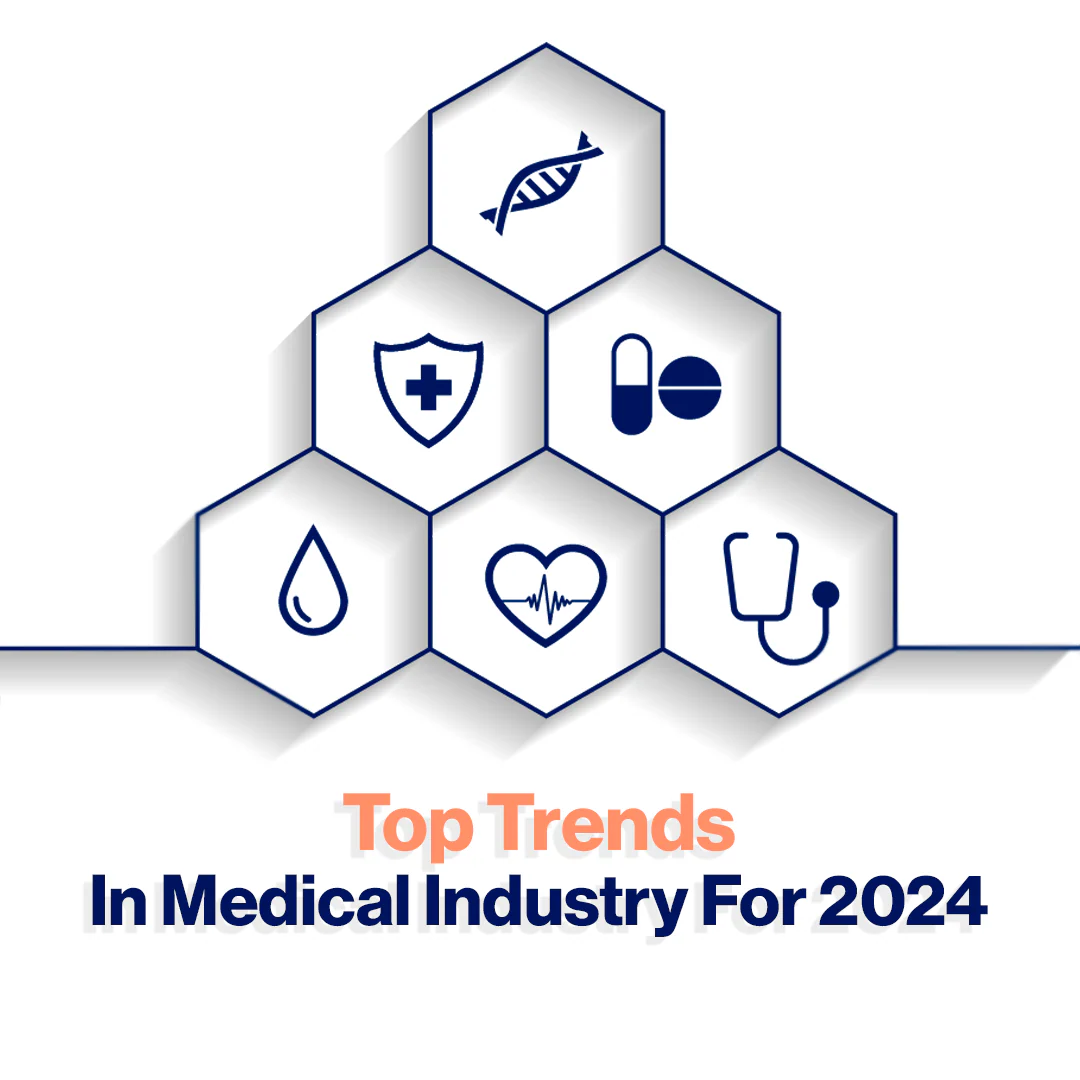Top Trends In Medical Industry For 2025
The medical industry undergoes continuous development each year, with advancements in technology, research, and healthcare delivery methods. The COVID-19 pandemic has undoubtedly accelerated certain trends and innovations within the medical field. What are the major trends in medicine and healthcare in 2024? Below we present several aspects that have high chances to dominate the industry in the coming months.
AI For Healthcare
AI (Artificial Intelligence) is increasingly playing a significant role in revolutionizing healthcare delivery. In 2024, AI is expected to dominate medical procedures, enhance diagnostics, and optimise treatment plans. Advanced AI algorithms can analyse vast amounts of patient data to identify patterns and predict outcomes with higher accuracy than traditional methods. Moreover, AI-powered systems can assist healthcare providers in clinical decision-making, leading to more personalised and effective care. This trend is likely to continue growing as AI technologies become more sophisticated and integrated into various healthcare settings.
Personalised Medicine
Personalised medicine involves tailoring medical treatment to the individual characteristics of each patient. In 2024, advancements in genomics, molecular diagnostics, and data analytics are driving the expansion of personalised medicine approaches.
Healthcare providers are increasingly utilizing genetic testing and biomarker analysis to identify patients who are most likely to benefit from specific treatments, thereby minimizing adverse effects and improving outcomes. With the growing availability of genetic data and technological tools, personalized medicine is becoming more accessible and widespread, transforming the healthcare area.
Wearable Devices
Wearable devices, such as smartwatches, fitness trackers, and medical sensors, are becoming ubiquitous in healthcare. These devices enable continuous monitoring of various health parameters, including heart rate, blood pressure, activity levels, and even blood glucose levels. In 2024, wearable technology is expected to become more sophisticated, integrating advanced sensors and AI algorithms to provide real-time insights into a person's health status.
What is important, wearables empower individuals to take proactive measures to manage their health and enable healthcare providers to monitor patients remotely, leading to more timely interventions and improved health outcomes.


